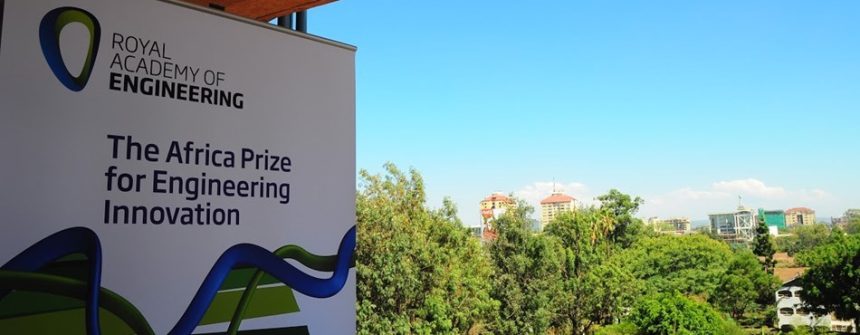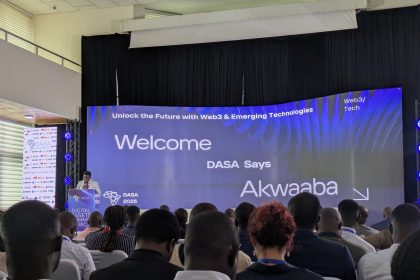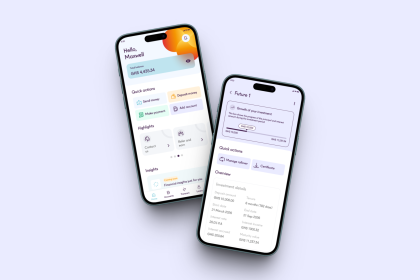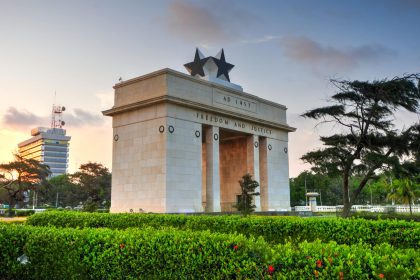Two entrepreneurs from Ghana, Eyram Amedzor and George Boateng have been shortlisted for the 2021 Africa Prize for Engineering Innovation.
Their solutions, SuaCode.ai (by George Boateng) and Jumeni Field Service Software (by Eyram Amedzor) have a chance to win the top prize of £25,000.
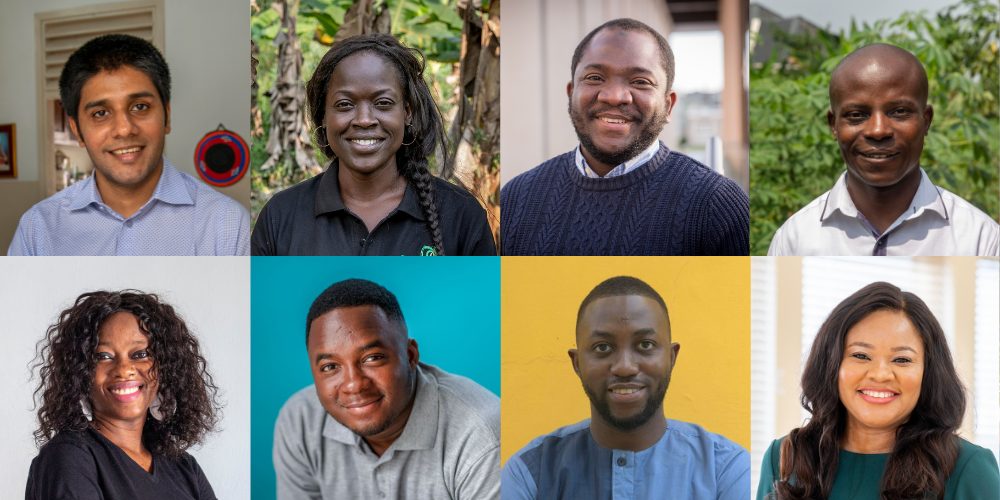
Bottom row L-R: Elohor Thomas, Eyram Amedzor, George Boateng, Faith Adesemowo
The Africa Prize recognises ambitious African innovators developing scalable engineering solutions to local challenges and this year’s shortlist represents nine countries including, for the first time, Côte d’Ivoire, Senegal, Ethiopia and the Gambia. Six of the 16-strong shortlist are female innovators.
Launched by the Royal Academy of Engineering in 2014, each year the Africa Prize programme provides a unique business support package to innovators who are transforming their communities. The Africa Prize has a track record of identifying engineering entrepreneurs with significant potential, many of whom have gone on to achieve greater commercial success and social impact.
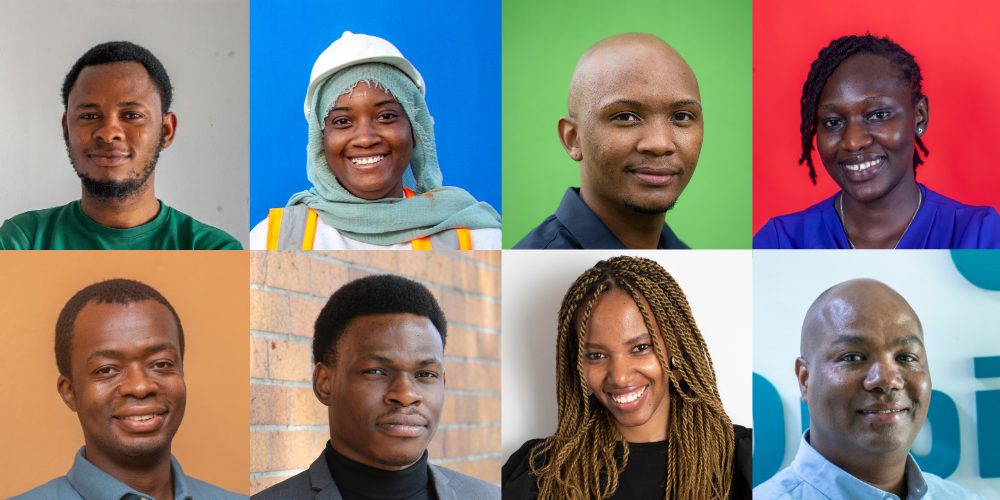
Bottom row L-R: Noel N’guessan, Olugbenga Olufemi Olubanjo, Indira Tsengiwe, Pazion Cherinet
The benefits of shortlist selection include eight months of comprehensive and tailored business training, bespoke engineering mentoring, media and communications training, funding and access to the Academy’s network of high-profile, experienced engineers and business experts in the UK and across Africa. This year marks the first fully digital programme, providing intensive expert guidance and community support through a mixture of online group and one-on-one sessions.
Emma Wade Smith OBE, Her Majesty’s Trade Commissioner for Africa at the UK Department for International Trade, said: “It makes me very proud to be part of this initiative that demonstrates so clearly and practically the power of partnerships between Africa and the UK. The range of innovations and innovators in this year’s shortlist offer an insight into Africa’s extraordinary diversity and talent and illustrates the importance we all place on nurturing and supporting Africa’s self-starters to create and scale sustainable and inclusive products and services that will help us rebuild our economies to be greener, cleaner and more resilient.
“The Africa Prize helps to accelerate entrepreneurial capacity and ecosystems. I am excited to follow the progress of this year’s cohort, and am certain we will see many of these inventions go on to create and sustain jobs and benefit our societies, as so many of the previous participants in the Africa Prize have done.”
Alumni of the Prize are projected to impact over three million lives in the next five years and have already created over 1500 jobs and raised more than $14 million in grants and equity.
Four finalists will be selected from the shortlist in June and invited to pitch their improved innovation and business plan to the judges and a live audience. A winner will be selected in July to receive £25,000, and three runners-up will receive £10,000 each..
The shortlisted technologies and candidates are:
- Aevhas, Jacob Azundah from Nigeria – A high-efficiency machine used to process cassava roots into the West African diet staple, garri.
- Biopackaging, Armelle Sidje from Cameroon – A sustainable manufacturing process which transforms banana and plantain stems to biodegradable paper packaging products.
- BlueAvo, Indira Tsengiwe from South Africa – A digital platform which connects creative brands and people in the media industry with local content creators and provides a digital workspace for collaboration and project development.
- CodeLn, Elohor Thomas from Nigeria – An automated tech recruitment platform that supports software engineering recruitment by connecting companies with talented people in the field and helps test their coding abilities.
- Dissolv Bioplastic, Tshepo Mangoele from South Africa – A bioplastic made from plant waste material which is compostable and dissolves in water at pre-determined rates.
- I3S, Marie Ndieguene from Senegal – A sustainably-made and affordable storage space solution made from diverted landfill waste designed to solve the problem of post-harvest loss in agriculture.
- Jumeni Field Service Software, Eyram Amedzor from Ghana – Software which assists service-based businesses by providing a three-part cloud-based application to help increase the productivity of their field teams.
- KubeKo, Noël N’guessan from Côte d’Ivoire – A low-cost biowaste processing machine designed for smallholder farmers to efficiently manage and monetise biowaste.
- Make3D Medical, Juka Fatou Darboe from The Gambia – Cost-effective locally 3D-printed customised orthopaedic, medical and assistive equipment for patients and healthcare workers.
- Mkono-1, Dr Atish Shah from Tanzania – A locally 3D-printed prosthetic hand which provides an affordable solution for people living with upper limb amputations.
- Orbit Health, Pazion Cherinet from Ethiopia – A digital health platform which manages and stores patient data and dispenses medication, allowing for seamless continuity of care.
- Reeddi, Olugbenga Olufemi Olubanjo from Nigeria – An energy system used to provide clean, reliable and affordable electricity to households and businesses operating in energy-poor communities.
- RealDrip, Taofeek Olalekan from Nigeria – An intravenous therapy solution combining the Internet of Things and AI to monitor dosages, flow rates and intake time.
- ShiVent, Yusuf Bilesanmi from Nigeria – A low-cost, non-electric and non-invasive ventilator for patients with respiratory difficulties.
- Social Lender, Faith Adesemowo from Nigeria – A digital financial services solution that uses a social reputation score to provide access to formal financial services for those without access to a smartphone or bank account.
- SuaCode.ai, George Boateng from Ghana – A smartphone application which uses artificial intelligence to teach coding remotely.
Original Press Release: Royal Academy Of Engineering



